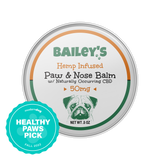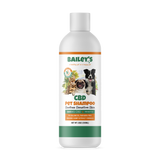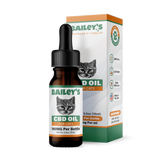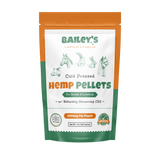Strawberries for Horses: Nutritious Delight?

Optimizing a horse's diet for health and wellness involves more than just grass and hay. Surprisingly, certain fruits like strawberries can play a beneficial role.

However, before introducing this delicious berry to your equine companion, it's crucial to understand its nutritional value and any potential risks. The team at Bailey’s CBD are dedicated to providing insights into how strawberries can fit into a horse's balanced diet.
Table of Contents
1. Understanding the Nutritional Value of Strawberries
Strawberries, those vibrant and juicy fruits, are not only a delightful treat for humans but also offer numerous benefits for our equine friends. Let's delve deeper into the nutritional value of strawberries and discover why they may be a fantastic and enjoyable addition to your horse's diet.
1.1 Vitamins and Minerals in Strawberries
Strawberries are not just a tasty snack; they are packed with vitamins and minerals that can support a horse's overall health. One of the standout nutrients found in strawberries is vitamin C. Just like in humans, vitamin C can boost a horse's immune system and help fight off infections and diseases. So, by including strawberries in their diet, you are providing them with a natural defense mechanism.
But that's not all! Strawberries also contain essential minerals that play a vital role in maintaining proper bodily functions in horses. Potassium, for instance, is crucial for muscle contraction and nerve function. By incorporating strawberries into your horse's diet, you are ensuring they receive an adequate supply of this essential mineral.
Another mineral found in strawberries is manganese. Manganese is involved in various enzymatic reactions in the body, contributing to the metabolism of carbohydrates, amino acids, and cholesterol. By consuming strawberries, your horse can benefit from this mineral and maintain optimal bodily functions.
1.2 Caloric Content of Strawberries
When it comes to feeding horses, monitoring their calorie intake is crucial to prevent weight gain or obesity. Luckily, strawberries are relatively low in calories, making them an excellent choice for a healthy addition to your horse's diet.
On average, one cup of strawberries contains around 50-60 calories. This means that by including strawberries in moderation, you can provide your horse with a nutritious treat without significantly impacting their calorie intake. So, go ahead and treat your equine companion to the sweet and tangy goodness of strawberries without worrying about their waistline.
Furthermore, the low-calorie content of strawberries makes them a suitable option for horses on a restricted diet. If your horse needs to shed a few pounds or maintain a healthy weight, incorporating strawberries can be a smart choice.
Happily, strawberries are not only a delicious and refreshing snack but also a nutritional powerhouse for horses. Packed with vitamin C, potassium, and manganese, and low in calories, strawberries can contribute to your horse's overall health and well-being. So, why not introduce these vibrant red gems into your horse's diet and let them enjoy the benefits of this delightful fruit?
2. Can Horses Eat Strawberries?
2.1 Digestive System of Horses
Horses have a unique digestive system designed for consuming fibrous vegetation. Their long gastrointestinal tract is optimized for digesting and extracting nutrients from grass and hay. This specialized digestive system allows horses to efficiently break down cellulose, a complex carbohydrate found in plant cell walls, into usable energy. The process begins in the mouth, where horses use their strong teeth to grind down the fibrous material. From there, the food travels down the esophagus and into the stomach, where it is further broken down by stomach acid. The partially digested food then moves into the small intestine, where the majority of nutrient absorption takes place. Finally, the remaining indigestible material enters the large intestine, where water is absorbed and the formation of feces occurs.
While fruits are not a natural part of their diet, some fruits can still be safely included as occasional treats. Horses primarily rely on grass and hay for their nutritional needs, as these provide the necessary fiber and nutrients for their digestive system to function properly. However, offering horses a variety of foods can help keep them mentally stimulated and satisfied.
2.2 Potential Allergic Reactions in Horses
It's worth noting that horses, like humans, can have allergies to certain foods. While strawberries are generally safe for horses to consume, there is a small chance that an individual horse may have an allergic reaction. Allergies occur when the immune system mistakenly identifies a harmless substance, such as a protein in strawberries, as harmful. This can lead to various symptoms, including itching, hives, difficulty breathing, and even anaphylaxis in severe cases.
Therefore, it's important to introduce strawberries gradually and observe any signs of discomfort or adverse reactions after feeding. If a horse shows any signs of an allergic reaction, it's crucial to consult a veterinarian for further evaluation and guidance. Additionally, it's important to note that while strawberries are generally safe for horses, other fruits, such as grapes and cherries, should be avoided as they can be toxic to equines.
Overall, while horses can enjoy the occasional strawberry treat, it's essential to prioritize their primary diet of grass and hay to ensure their digestive system functions optimally. By understanding their unique digestive system and being aware of potential allergies, horse owners can make informed decisions about introducing new foods into their equine companion's diet.
3. Benefits of Strawberries for Horses
Strawberries are more than a delicious treat for humans, they also offer numerous benefits for horses. From boosting their immune system to enhancing digestive health, strawberries can be a valuable addition to a horse's diet.
3.1 Boosting Immune System
The high vitamin C content in strawberries can have a positive impact on a horse's immune system. Vitamin C is known for its immune-boosting properties, and horses can benefit greatly from this nutrient. A healthy immune system is crucial for horses, especially in situations such as traveling, competing, or when recovering from an illness. Including strawberries in their diet can support their immune response and overall well-being.
In addition to vitamin C, strawberries also contain other antioxidants that can help strengthen a horse's immune system. These antioxidants work by neutralizing harmful free radicals in the body, which can cause oxidative stress and weaken the immune system. By including strawberries in their diet, horse owners can provide their equine companions with an extra layer of protection against diseases and infections.
3.2 Enhancing Digestive Health
Strawberries are not only tasty but also contain dietary fiber, which can promote healthy digestion in horses. Fiber plays a crucial role in maintaining proper bowel movements and preventing digestive issues such as constipation. By including strawberries in their diet, horse owners can ensure that their four-legged friends have a well-functioning digestive system.
Furthermore, the fiber in strawberries also aids in maintaining a healthy gut microbiome in horses. The gut microbiome refers to the community of microorganisms that reside in the horse's digestive tract. These microorganisms play a significant role in overall digestive health, as they help break down food and absorb nutrients. By consuming strawberries, horses can provide their gut microbiome with the necessary fiber to thrive, resulting in improved digestion and nutrient absorption.
It's worth noting that while strawberries can offer these benefits, moderation is key. Like any treat, strawberries should be given in appropriate quantities and as part of a balanced diet. Consulting with a veterinarian or equine nutritionist can help determine the ideal amount of strawberries to include in a horse's diet, taking into consideration their individual needs and any existing health conditions. Remember that your horse’s favorite veterinarian is your best resource for guidance when you are selecting feed, treats, supplements, and other dietary components for your horse.
4. Risks and Precautions When Feeding Strawberries to Horses
4.1 Overfeeding and Its Consequences
While strawberries can be a nutritious addition to a horse's diet, it's crucial to avoid overfeeding them. Too many strawberries can lead to an increase in sugar intake, which can contribute to weight gain, metabolic disorders, or even laminitis. It's essential to offer strawberries as an occasional treat rather than a significant portion of their daily diet.
When it comes to feeding strawberries to horses, moderation is key. While these juicy red fruits are packed with vitamins and antioxidants, they also contain natural sugars. Just like humans, horses can experience health issues if they consume too much sugar. Laminitis, a painful and potentially debilitating hoof condition, is a particular concern. The high sugar content in strawberries can disrupt a horse's delicate metabolic balance, leading to weight gain and an increased risk of developing metabolic disorders.
It's important to remember that horses have different dietary needs than humans. While strawberries may seem like a healthy snack for us, they should only be offered to horses as an occasional treat. Instead of making strawberries a regular part of their daily diet, it's best to reserve them for special occasions or as a reward for good behavior.

4.2 Pesticides and Chemicals in Strawberries
When feeding strawberries, it's important to consider the potential presence of pesticides and other chemicals. To minimize the risk, opt for organic strawberries whenever possible. Additionally, make sure to thoroughly wash the strawberries before offering them to your horse to remove any residue that may be present.
Strawberries, like many other fruits and vegetables, are often treated with pesticides to protect them from pests and diseases. While these chemicals are deemed safe for human consumption within certain limits, their effects on horses may differ. Horses have a more sensitive digestive system, and certain pesticides can cause adverse reactions or even toxicity.
Choosing organic strawberries can help reduce the risk of exposing your horse to harmful pesticides. Organic farming practices prohibit the use of synthetic pesticides, ensuring that the strawberries are grown without the addition of potentially harmful chemicals. By opting for organic strawberries, you can provide a safer option for your horse's occasional treat.
In addition to choosing organic strawberries, it's crucial to wash them thoroughly before offering them to your horse. Washing the strawberries can help remove any residue that may be present on the surface. This simple step can further minimize the risk of exposing your horse to pesticides or other chemicals that may have been used during cultivation.
5. How to Properly Feed Strawberries to Horses
5.1 Preparing Strawberries for Your Horse
Before feeding strawberries to your horse, it's crucial to prepare them properly. Start by washing the strawberries thoroughly to remove any dirt or contaminants. Next, remove the stems and cut the strawberries into bite-sized pieces to make it easier for your horse to consume.
5.2 Incorporating Strawberries into a Horse's Diet
When it comes to incorporating strawberries into your horse's diet, moderation is key. Treat strawberries as a special reward or treat, rather than a staple food. Offer them in small quantities and vary their inclusion to keep things interesting. Remember, a balanced diet that consists primarily of grass and hay is essential for your horse's overall well-being.











